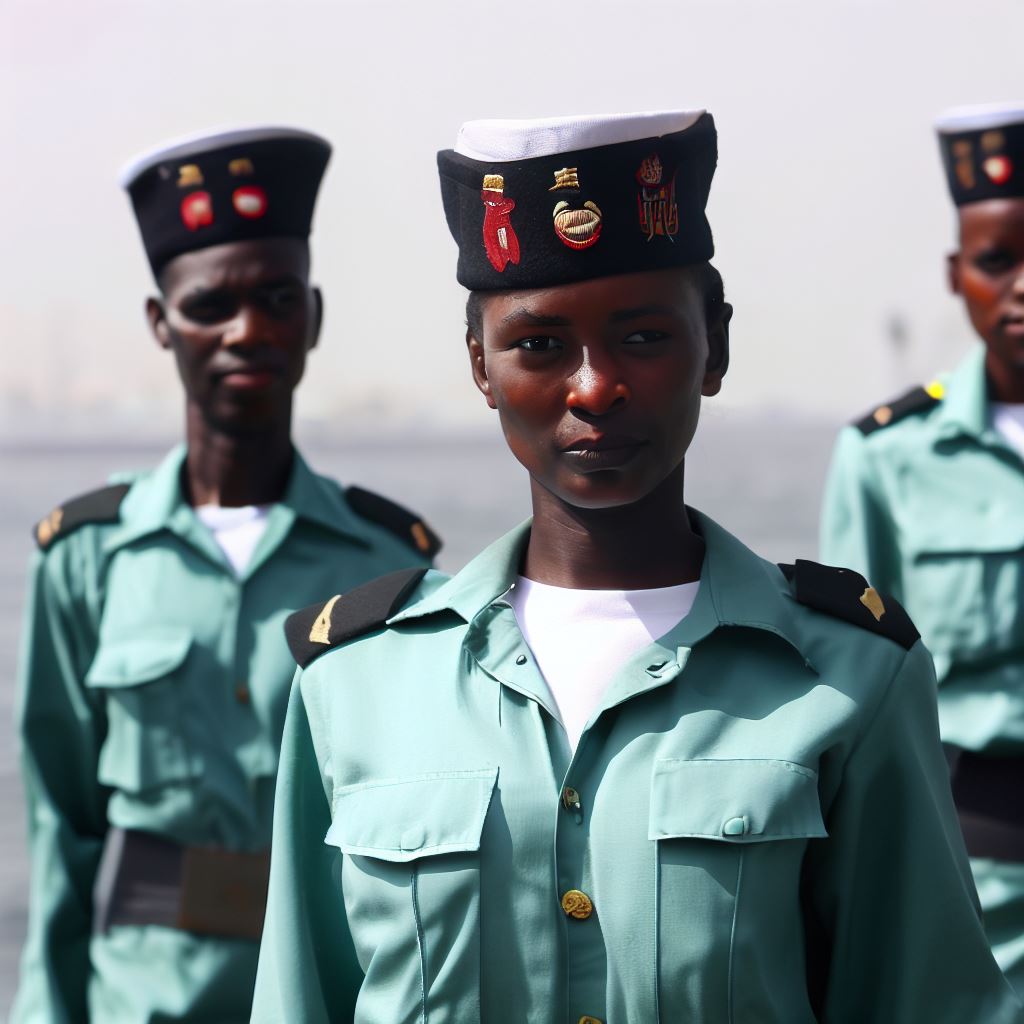Introduction
A. Importance of Marine Laws and Regulations for Sailors
Marine laws and regulations are the compass guiding sailors through safe and lawful waters. Understanding them is paramount.
Picture this: A ship at sea, waves crashing, and you, a sailor, confidently navigating the vast, unpredictable ocean.
Importance of Marine Laws
A. Protecting the environment
The importance of marine laws cannot be overstated when it comes to protecting the environment.
Marine ecosystems and biodiversity are vital for the health of the planet and all its inhabitants, including humans.
Without proper regulations and enforcement, these ecosystems and biodiversity are at risk of irreversible damage.
1. The need to preserve marine ecosystems and biodiversity
One of the primary reasons why marine laws are essential is their role in preserving marine ecosystems and biodiversity.
These ecosystems are incredibly diverse, hosting a wide variety of species and providing numerous ecological services.
They serve as nurseries for many commercial fish species, feeding grounds for marine mammals, and habitats for other organisms.
In addition to preserving marine ecosystems and biodiversity, marine laws also have economic and social implications.
Healthy marine ecosystems support numerous industries such as fishing, tourism, and transportation.
By protecting these ecosystems, marine laws ensure the sustainability of these industries and the livelihoods of those who depend on them.
Moreover, marine laws help in fostering international cooperation. Many marine ecosystems are shared between multiple countries, and effective management requires collaboration.
Through international agreements and conventions, marine laws facilitate cooperation in areas such as conservation, pollution prevention, and sustainable resource management.
2. Role of marine laws in preventing pollution and overfishing
Marine laws help in preventing pollution that can harm marine ecosystems.
Many human activities, such as industrial waste disposal, oil spills, and sewage discharge, have the potential to contaminate the marine environment.
These pollutants can lead to the destruction of habitats, the killing of marine life, and long-lasting ecological damage.
Overfishing is another significant issue that marine laws aim to address.
Unregulated and unsustainable fishing practices can deplete fish populations, disrupt the balance of marine ecosystems, and result in the collapse of fisheries.
By implementing regulations and quotas, marine laws help ensure the sustainability of fish stocks and protect the livelihoods of fishing communities.
Marine laws also promote responsible fishing practices. They often specify size and catch limits, fishing gear restrictions, and designated fishing zones.
These regulations help prevent overfishing and protect vulnerable species, allowing fish populations to recover and thrive.
In essence, marine laws play a crucial role in protecting the environment, specifically by preserving marine ecosystems and biodiversity.
They help prevent pollution and overfishing and promote responsible fishing practices.
Marine laws have economic and social benefits, ensuring the sustainability of industries and facilitating international cooperation.
It is imperative to support and enforce these laws to safeguard the health of our oceans and the future of marine life.
Read: Tank Car Loaders in Nigeria: Skills, Pay, and Prospects
Safety and Security
When it comes to sailing, safety and security are of utmost importance.
It is crucial for sailors to be well-versed in marine laws and regulations to ensure a smooth and secure voyage.
A. Vessel operations and navigation
Sailing involves the operation of a vessel and navigation through various waterways.
To avoid any mishaps or accidents at sea, sailors must adhere to a set of rules for safe navigation.
1. Overview of rules for safe navigation, including waterways and traffic regulations
Every sailor should have a comprehensive understanding of the rules that govern safe navigation.
These regulations include guidelines for navigating through different waterways, such as rivers, canals, and oceans.
Additionally, sailors must be knowledgeable about traffic regulations at sea, which dictate how vessels should interact with one another. These rules help prevent collisions and maintain order on the water.
By following these rules, sailors can navigate safely and efficiently, ensuring the well-being of themselves and others around them.
2. Importance of following navigation aids and markers
Navigation aids and markers play a crucial role in guiding sailors through their journey.
These aids include lighthouses, buoys, beacons, and electronic navigational systems.
It is essential for sailors to understand the significance of these navigation aids and markers and to follow them diligently.
They provide valuable information about water depths, potential hazards, and safe routes to follow.
By relying on these aids, sailors can make informed decisions and avoid dangerous areas or obstacles that could jeopardize their safety or damage their vessel.
Furthermore, navigation aids and markers also assist sailors in maintaining compliance with marine laws and regulations. Neglecting to follow them can result in penalties or legal consequences.
Therefore, it is imperative for sailors to familiarize themselves with the meanings and symbols associated with navigation aids and markers, ensuring their adherence to proper navigation practices.
In fact, safety and security are paramount in sailing. Sailors must have a thorough understanding of marine laws and regulations to ensure a safe and enjoyable voyage.
By adhering to the rules for safe navigation and following navigation aids and markers, sailors can navigate efficiently and avoid potential hazards or accidents at sea.
Remember, the ocean can be unpredictable, but with proper knowledge and adherence to marine laws and regulations, sailors can mitigate risks and enjoy the beauty of the open waters.
Stay safe, sail responsibly, and respect the laws that govern the marine environment!
Read: Recruitment and Training for Marine Oilers in Nigeria
International Maritime Laws and Treaties
In order to maintain peace and stability at sea, it is crucial for sailors to have a good understanding of international maritime laws and treaties.
These laws and treaties govern various aspects of maritime activities, including maritime boundaries and territories.
In this section, we will explore the significance of recognizing and respecting boundaries at sea and discuss conflicts arising from disputes over territories.
A. Maritime boundaries and territories
Sailors must be aware of the importance of recognizing and respecting boundaries at sea.
By doing so, they contribute to maintaining peaceful relations between nations and ensuring the safe and smooth navigation of vessels.
Conflicts over territorial claims in the maritime domain have become increasingly common in recent years.
As countries seek to expand their maritime boundaries for various reasons such as access to resources or strategic advantage, disputes arise when different nations claim the same areas.
One prominent example of such conflicts is the South China Sea dispute involving multiple countries in the Asia-Pacific region.
The overlapping territorial claims in this region have led to tensions, increased military presence, and even incidents of aggression.
These conflicts not only pose a threat to the peace and stability of the region but also endanger the safety of sailors navigating through these disputed waters.
1. Significance of recognizing and respecting boundaries at sea
Recognizing and respecting boundaries at sea can help prevent such conflicts from escalating and ensure the peaceful coexistence of nations.
International maritime laws and treaties play a crucial role in defining these boundaries and providing a framework for resolving disputes.
One example of a treaty that addresses maritime boundaries is the United Nations Convention on the Law of the Sea (UNCLOS).
This treaty, adopted in 1982, establishes the legal framework for the use and conservation of the world’s oceans and their resources.
UNCLOS sets out guidelines for determining maritime boundaries and provides mechanisms for resolving disputes through peaceful means.
It emphasizes the importance of cooperation and dialogue among nations to reach mutually acceptable solutions.
By adhering to international maritime laws and treaties like UNCLOS, sailors can navigate with confidence, knowing that there are established rules and procedures in place to ensure their safety and protect their rights.
These laws and treaties also contribute to the peaceful resolution of disputes, reducing the risk of conflicts at sea.
In short, recognizing and respecting boundaries at sea is of utmost importance for sailors.
By understanding international maritime laws and treaties, sailors can contribute to peace and stability at sea while ensuring their own safety and rights are protected.
Conflicts arising from disputes over territories can be mitigated through adherence to established legal frameworks and a commitment to peaceful resolution.
Read: Safety Protocols for Marine Oilers in Nigeria: A Guide

Legal Obligations and Responsibilities
A. Registration and Documentation
Registering a vessel is not just a formality, but an important legal obligation that all sailors must fulfill.
It involves the process of officially documenting and recording the ownership and identity of the vessel with the relevant authorities.
Failure to properly register a vessel can result in severe consequences. Therefore, it is imperative for sailors to understand the importance of adhering to this regulation.
1. Importance of properly registering the vessel
When a vessel is properly registered, it provides a legal proof of ownership to its rightful owner.
This registration serves as a verification of the vessel’s identity, ensuring that it is not involved in any illegal activities such as smuggling or piracy.
Additionally, registration allows the vessel to fly the national flag of the country under which it is registered, granting it certain privileges and protections while sailing in international waters.
Furthermore, registration facilitates easy identification of vessels by the authorities, making it effortless to enforce maritime laws and regulations.
In the event of accidents, disputes, or other incidents at sea, the registered details of the vessel can be accessed quickly, aiding in the resolution of any legal matters.
This not only benefits the owner but also contributes to maritime security and safety as a whole.
2. Essential documentation required for sailing
Alongside vessel registration, sailors must possess essential documentation for sailing. The first and foremost requirement is proof of ownership, which could be a bill of sale or a lease agreement.
This document establishes the individual or entity as the rightful owner of the vessel and should be carried on board at all times.
In addition to proof of ownership, sailors must possess a boat title. This document acts as the official record of the vessel’s ownership history and transition.
It contains important details such as the vessel’s unique identification number, previous owners, and any relevant mortgages or liens.
The boat title serves as a legal document to transfer ownership and should be kept in a secure place.
Lastly, sailors need to obtain a valid sailing permit or license, which typically includes a certificate of documentation.
This document certifies that the vessel has been registered and meets the necessary safety and compliance standards required for sailing.
Sailing without a valid permit can lead to penalties, fines, or even the impoundment of the vessel.
In general, registering a vessel and possessing the required documentation are fundamental legal obligations and responsibilities for sailors.
Proper registration ensures compliance with marine laws, provides legal proof of ownership, and aids in maintaining maritime security and safety.
Essential documentation such as proof of ownership, boat title, and a valid sailing permit play a vital role in asserting ownership, recording the vessel’s history, and meeting safety standards.
By fulfilling these obligations, sailors can enjoy a worry-free sailing experience while navigating the seas.
Read: The Impact of Technology on Sailors in Nigeria’s Navy
Marine Pollution and Conservation
A. Oil spills and waste disposal
- Marine pollution regulations aim to protect the delicate marine ecosystem and ensure sustainability.
- MARPOL (International Convention for the Prevention of Pollution from Ships) is a key international agreement.
- MARPOL establishes regulations for different types of pollution, including oil spills and waste disposal.
- Oil spills pose a significant threat to marine life and coastal ecosystems.
- Ships are required to have oil spill response plans and equipment to mitigate the effects of spills.
- Waste disposal from ships must comply with strict guidelines to minimize pollution.
- Special areas, such as the Great Barrier Reef, have additional regulations to protect sensitive environments.
- Penalties for violating pollution regulations can be severe, including fines and imprisonment.
- Ship operators can also be held liable for cleanup costs and damages caused by pollution incidents.
- It is essential for sailors to understand and comply with pollution regulations to avoid legal repercussions.
1. Conservation efforts and marine sanctuaries
- Conservation measures play a vital role in preserving the health and biodiversity of marine ecosystems.
- Marine protected areas (MPAs) are designated regions aimed at conserving marine resources.
- MPAs help protect habitats, limit fishing activities, and promote sustainable practices.
- International organizations, such as UNESCO, oversee the establishment and management of MPAs.
- Examples of well-known MPAs include the Great Barrier Reef Marine Park and the Galapagos Marine Reserve.
- These areas serve as vital breeding grounds for marine species and support fragile ecosystems.
- Sailors should be aware of any restrictions within MPAs and follow guidelines to avoid damaging marine resources.
- Other conservation efforts include the promotion of sustainable fishing practices and the reduction of bycatch.
- Bycatch refers to the unintentional capture of non-target species, which can disrupt marine ecosystems.
- Efforts to educate sailors about the importance of conservation and sustainable practices are crucial.
- Through collaboration and compliance with conservation efforts, sailors can contribute to the protection of marine environments.
Marine pollution poses significant risks to ecosystems, while conservation efforts are crucial for preserving biodiversity.
Violations of pollution regulations can result in severe penalties and financial liabilities for ship operators.
Understanding and complying with these laws are essential for sailors to avoid legal consequences.
Additionally, the establishment of marine protected areas and the promotion of sustainable practices are important steps in ensuring the long-term health of our oceans.
By actively participating in conservation efforts, sailors can contribute to the preservation of marine environments for future generations.
Fisheries and Wildlife Protection
A. Sustainable fishing practices
Regulation is essential to maintain sustainable fishing practices and protect the future of fish stocks.
Regulations on size limits prevent overfishing and allow fish to reach reproductive maturity, ensuring their population’s sustainability.
Strict regulations on fishing gear control their use to prevent damage to fish habitats and minimize bycatch.
Protected areas are designated to preserve marine biodiversity and provide safe spaces for fish to breed and replenish.
1. Protection of endangered species
Protecting endangered species is crucial to maintain the balance and biodiversity of marine ecosystems.
Regulations limit or prohibit the harvesting or hunting of endangered species to prevent their further decline.
Efforts are made to protect the habitats and nesting grounds of endangered species through designating marine protected areas.
2. Environmental impact assessments
Environmental impact assessments evaluate the potential risks and impacts of proposed marine activities before they are allowed.
Regulations mandate that any proposed marine activity that could harm the environment must undergo an environmental impact assessment.
These assessments help determine if the potential environmental impacts are acceptable and whether mitigations are necessary.
3. Aquaculture regulations
Regulations on aquaculture help prevent pollution, disease spread, and habitat destruction, ensuring sustainable practices.
Site selection regulations ensure that aquaculture facilities are located in areas where they will have minimal negative impacts on the environment and native species.
Water quality monitoring is essential to maintain the health of fish and prevent pollution from aquaculture operations.
Proper control and regulation of chemical use in aquaculture prevent negative effects on marine ecosystems and human health.
4. International conventions and agreements
International conventions and agreements foster collaboration and ensure the conservation of marine resources beyond national boundaries.
The United Nations Convention on the Law of the Sea establishes the legal framework for ocean use, including fisheries management and marine pollution regulations.
The Convention on International Trade in Endangered Species regulates the trade of endangered species to prevent their exploitation.
In review, the strict regulation of fisheries and wildlife protection is essential to promote sustainable practices, conserve endangered species, assess potential environmental impacts, regulate aquaculture, and ensure international cooperation.
These measures aim to safeguard the long-term viability of marine resources and maintain the health of marine ecosystems.
Gain More Insights: Truck Drivers’ Rights and Benefits in Nigeria
Law Enforcement and Investigations
In the vast expanse of the open sea, sailors must be vigilant and informed about marine laws and regulations.
Part of this knowledge involves understanding how to report incidents and emergencies effectively, as well as comprehending the role of law enforcement agencies in maintaining maritime security.
A. Reporting Incidents and Emergencies
1. Accidents at Sea
Sailors, when involved in accidents, must immediately notify their vessel’s captain and document the incident.
Subsequently, a formal report should be submitted to the appropriate maritime authorities.
This ensures a thorough investigation and compliance with maritime laws.
2. Piracy
Pirate attacks remain a significant concern for sailors. In the event of a piracy attempt or attack, immediate action is crucial.
Sailors should alert the ship’s crew, initiate anti-piracy measures, and communicate with naval forces and maritime security agencies.
Reporting piracy incidents helps coordinate response efforts and track piracy trends.
3. Suspicious Activities
Vigilance is key. Sailors should report any unusual or suspicious activities near their vessel, such as unidentified boats approaching or loitering nearby.
Timely reporting to maritime authorities can prevent potential threats and illegal activities.
B. Role of Law Enforcement Agencies
1. Maritime Security
Law enforcement agencies play a pivotal role in safeguarding maritime security.
They patrol waters, respond to distress calls, and collaborate with international counterparts to combat piracy and illegal activities. Their presence helps deter criminal actions.
2. Investigations
When incidents occur, law enforcement agencies conduct thorough investigations.
They gather evidence, interview witnesses, and analyze data to determine the cause and culpability.
Cooperation from sailors in reporting incidents is crucial for these investigations to yield results.
Understanding the importance of reporting incidents and the role of law enforcement agencies empowers sailors to contribute to safer seas.
Compliance with these procedures ensures not only personal safety but also the preservation of the integrity of the maritime environment.
Conclusion
This blog post has discussed the key points regarding marine laws and regulations that sailors need to know.
It is crucial for sailors to familiarize themselves with these laws and regulations in order to ensure their safety and avoid legal issues.
For further information or assistance, readers can refer to the following additional resources:
- Maritime Safety Information, provided by the International Maritime Organization (IMO).
- Official websites of relevant maritime authorities or organizations in their respective countries.
- Professional associations or organizations for sailors, which often provide resources, training, and guidance related to marine laws and regulations.




